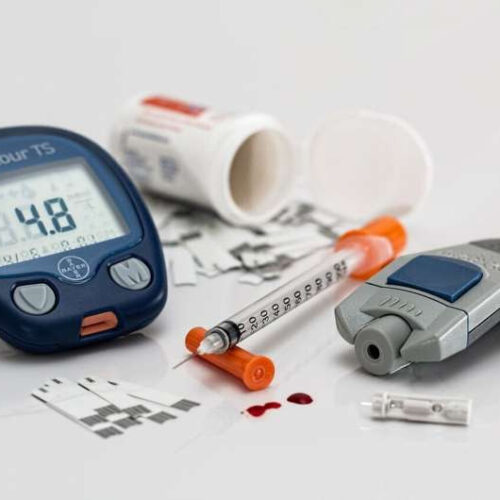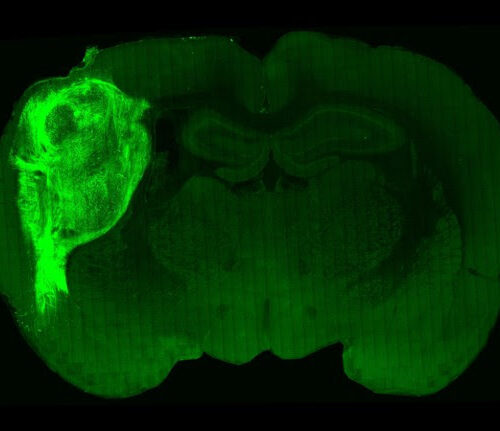by Maddie Burakoff A woman shows a pack with iodine tablets before distributing them to residents at a local school in case of a radiation leak in Zaporizhzhia, Ukraine, Friday, Sept. 2, 2022. The war in Ukraine has heightened fears about nuclear exposure — and interest in iodine pills that can help protect the body...
The polypill could help with avoiding millions of premature deaths, heart attacks and strokes every year
by McMaster University Low-cost blood pressure lowering drugs, statins and aspirin widely in the form of a single pill, also known as the polypill. Credit: McMaster University Global health has paid a deadly price for not using simple, low-cost blood pressure lowering drugs, statins and aspirin widely in the form of a single pill, also...
A new theory to explain how spinal neuronal circuits control locomotion
by Bob Yirka, Medical Xpress Credit: Unsplash/CC0 Public Domain A team of researchers at the University of Copenhagen working with a colleague from the Max Delbrück Center for Molecular Medicine in Berlin has developed a new theory to explain how spinal neuronal circuits control locomotion in turtles. The study is published in Nature. Martha Bagnall with...
New research details the microbial origins of Type 1 diabetes
by University of Oregon Credit: CC0 Public Domain Almost a decade ago, UO graduate student Jennifer Hampton Hill made a fortuitous find: A protein made by gut bacteria that triggered insulin-producing cells to replicate. The protein was an important clue to the biological basis for Type 1 diabetes, an auto-immune disease in which the pancreas...
Losing Weight But Blood Sugar Still High: Diabetes Questions and Answers
BY GARY SCHEINER, MS, CDCES | OCTOBER 4, 2022 Q: I’ve lost a lot of weight recently by following a careful diet. At first, my blood sugars came down nicely. But now, even with more weight loss, my blood sugars won’t budge. Do you have any ideas? I have type 2 diabetes. A: Congrats on the weight loss!...
Could You Have Autonomic Neuropathy?
BY AMY CAMPBELL, MS, RD, LDN, CDCES | OCTOBER 5, 2022 Neuropathy is a term that means nerve damage, and it happens to be one of the longer-term complications of having diabetes. There are different types of neuropathies, and you might be familiar with a type called peripheral neuropathy, which is when nerves in the hands, arms, and...
Human ‘mini-brains’ implanted in rats prompt excitement — and concern
Sara Reardon Researchers have transplanted a human brain organoid (bright green) into the brain of a newborn rat pup, creating hybrid brains in which the neurons interface. Credit: Stanford University Miniature human brain-like structures transplanted into rats can send signals and respond to environmental cues picked up by the rats’ whiskers, according to a study1....
DEFECTIVE GENE PLAYS A ROLE IN RARE LYSOSOME DISEASE
A lysosomal storage disorder, mucolipidosis type II causes edema of the internal organs and skeletal dysplasia. Children diagnosed with the genetic disease often die before they reach age seven. Now, researchers have identified a new gene implicated in the disease, TMEM251, which is necessary for lysosomes to function correctly. Lysosomes are organelles within all cells...
Study shows some children with homozygous familial hypercholesterolemia miss out on decades of life-saving treatment
by Family Heart Foundation Credit: Unsplash/CC0 Public Domain The Family Heart Foundation, a leading research and advocacy organization, has shared results from an analysis of patients in its CASCADE FH Registry showing that children with homozygous familial hypercholesterolemia (HoFH) are diagnosed earlier and have much higher untreated low-density lipoprotein cholesterol (LDL-C) than adults with HoFH....
One sigmoidoscopy significantly reduces long-term CRC incidence in both men and women
by American College of Physicians Credit: Pixabay/CC0 Public Domain A pooled analysis evaluating the 15-year effect of sigmoidoscopies has found that receiving one sigmoidoscopy significantly reduces long-term incidence of colorectal cancer (CRC) in both men and women. The analysis is published in Annals of Internal Medicine. Colorectal cancer is the third most common cancer worldwide, with...









